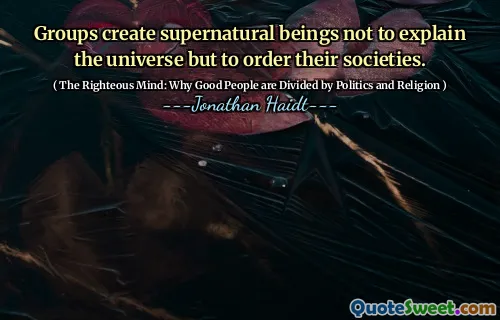"The Righteous Mind: Why Good People are Divided by Politics and Religion" by Jonathan Haidt explores the psychological underpinnings of morality and how it influences our political and religious affiliations. Haidt argues that morality is not just a personal belief system, but a complex interplay of intuitions and reasoning shaped by evolutionary factors. He emphasizes that our moral views are often driven by innate intuitions rather than purely logical thought processes.
The author divides human morality into several key foundations, including care, fairness, loyalty, authority, and sanctity. These foundations help explain why people from different political and religious backgrounds can have starkly different views on various social issues. Haidt suggests that understanding these moral foundations can foster better dialogue and empathy among individuals with opposing beliefs, encouraging collaboration despite differences.
Ultimately, Haidt calls for a more compassionate and open-minded approach to political and religious debates. He argues that recognizing and appreciating the moral motivations of others can help bridge the divides that often lead to conflict. By promoting understanding rather than judgment, individuals can work towards a more harmonious society where divergent opinions are valued rather than dismissed.
More »
Today Birthdays
1955 -
Max Lucado
1946 -
John Piper
1842 -
William James
1907 -
Abraham Joshua Heschel
1887 -
Aldo Leopold
1755 -
Alexander Hamilton
1976 -
Alethea Kontis
1971 -
Mary J. Blige
1825 -
Bayard Taylor
1943 -
Jim Hightower
1885 -
Alice Paul
1923 -
Carroll Shelby
1928 -
David L. Wolper
1954 -
Kailash Satyarthi
1972 -
Amanda Peet
1946 -
Naomi Judd
1970 -
Malcolm D. Lee
1955 -
Christian Marclay
1973 -
Rahul Dravid
1987 -
Jamie Vardy
1942 -
Clarence Clemons
1992 -
Fatima Sana Shaikh
1948 -
Larry Harvey
1930 -
Rod Taylor
